I’ve been spending time over my last few conventions learning more about Mindclash Games, the publisher of heavyweight Eurogame experiences such as Trickerion: Legends of Illusion, Anachony, and the upcoming Voidfall. At last year’s SPIEL event in Essen, Germany, I spent about an hour getting to know Mindclash CEO Viktor Peter, and we had an interesting conversation about the state of the industry.
Fast forward to this year’s Gen Con show in Indianapolis; Viktor was kind enough to sit down for a formal interview to discuss all things Mindclash—the company’s origin story, the games, the new sub-brand Mindclash Play, and a few other topics.
Below is a transcript of our conversation, which was recorded on Thursday, August 5th at the Mindclash booth at Gen Con. Enjoy!
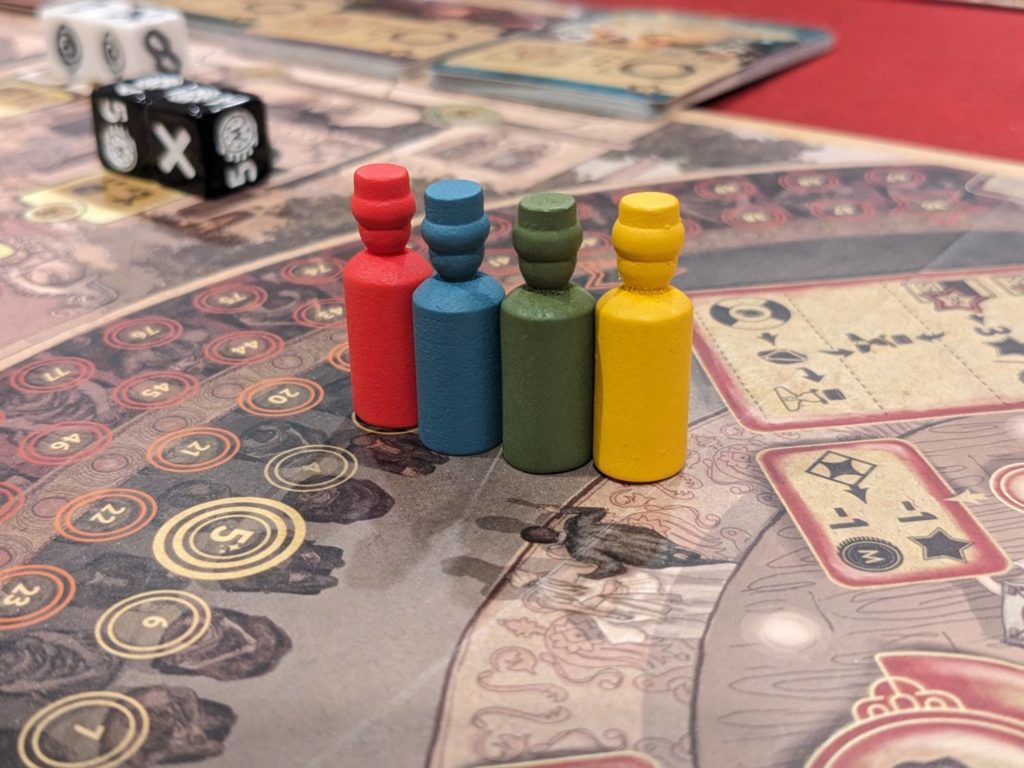
Justin Bell (JB): Let’s start at the beginning. As you were coming up with the first designs for Mindclash and being new to this business, what strikes you as being interesting about those first few years?
Viktor Peter (VP): Wow, yes…in 2013, we had no idea about how to do business back then. Trickerion: Legends of Illusion was the game; it was just a random card game that I came up with on a ski trip with Richard [Amann, the co-designer of Trickerion]. First it was a card game, then it got a board, then it got a new theme—it was originally about swindlers, sort of a trick taking card game—then it evolved and evolved. Once we got the magician theme, and we were all big fans of the movie The Prestige, that helped to shape the design.
That was the first time when we realized that designing theme-first is an infinite source of inspiration for both Richard and I. At Mindclash, we are still embracing that philosophy today, to try to design theme-first as much as we can.
JB: I love the art style of Trickerion; it just feels like those old-time carnival themes in the tiles used to select turn order. What was the original theme going to be for Trickerion?
VP: We had some mechanisms in place, but we had the theme before all of that, maybe 10-20% of the design was done and we had the theme ready to go. At that point, the design really took off…the game basically designed itself!
JB: OK, I’m going to disagree on this one; you are short selling this a little bit. There’s SO much more going on in the game, right? There’s so much to do in the pre-game of Trickerion, with all of the decisions you have to make before you even start to play. It’s a VERY deep game!
VP: OK, you are right, it’s a surprisingly deep game for a first game [design], and I probably wouldn’t do the same thing to start with today because it was such a huge leap of faith with the game being so deep.
We didn’t think about publishing it initially. It was just a game we designed for ourselves. We just wanted to have a game to our name. After we began to see the potential in the game, we actually—Villő Farkas, our graphic designer and artist, you know, she’s been with us since the beginning—she started building all of the artwork, and we loved it. Her style was developing as our design philosophy was developing. We were all growing together, and it all culminated in Trickerion. She has always been known for her hand-drawn art, classical art style…she built on that and leaned into it. When you look at [the upcoming game] Septima, you’ll be able to tell that it’s the same person.

JB: With Trickerion, was there a magic moment? When someone else in the industry first played it?
VP: Oh yeah, there was! Essen 2014! I swear, we took this game, and the game looked pretty good by 2014—
JB: Which is a really, really fast time! Lots of first designs, I hear a lot of stories of designers taking four, five, ten years to develop their first game!
VP: Well, we did work on Trickerion a lot of years before 2013, 2014…but by 2014, we felt like we could quit our day jobs and dedicate all of our time to this game. We knew then that this was something we wanted to publish. At that time, Kickstarter was up and coming and this looked like a great fit. I still believe that this came at the right place, the right time; it was a passion project, a heavy game, and I’m still not sure Trickerion would have done as well today as it did back then. There’s more competition now, more established publishers, more expectations that crowdfunded games are more reputable.
JB: Before all of this, how long have you been playing games?
VP: All my life, basically…but I have to admit that I’ve been a video game player all my life! I still am!
JB: What was your video game of choice back in the day?
VP: RTS [real-time strategy games], so Command & Conquer, Diablo 2, oh my goodness I love Diablo 2. And I HATE what they did with Diablo 4. It looks good, but it gets so shallow.
Now, I still did play a lot of tabletop games, and like most of us I had my CATAN period. Hardcore Uwe Rosenberg period as well, so lots of Agricola, lots of Caverna. Then, Terraforming Mars…I’m a Euro fan, I’ve been a Euro fan all my life. I tried Ameritrash a lot of times, but save for a few exceptions, they just didn’t really stick.
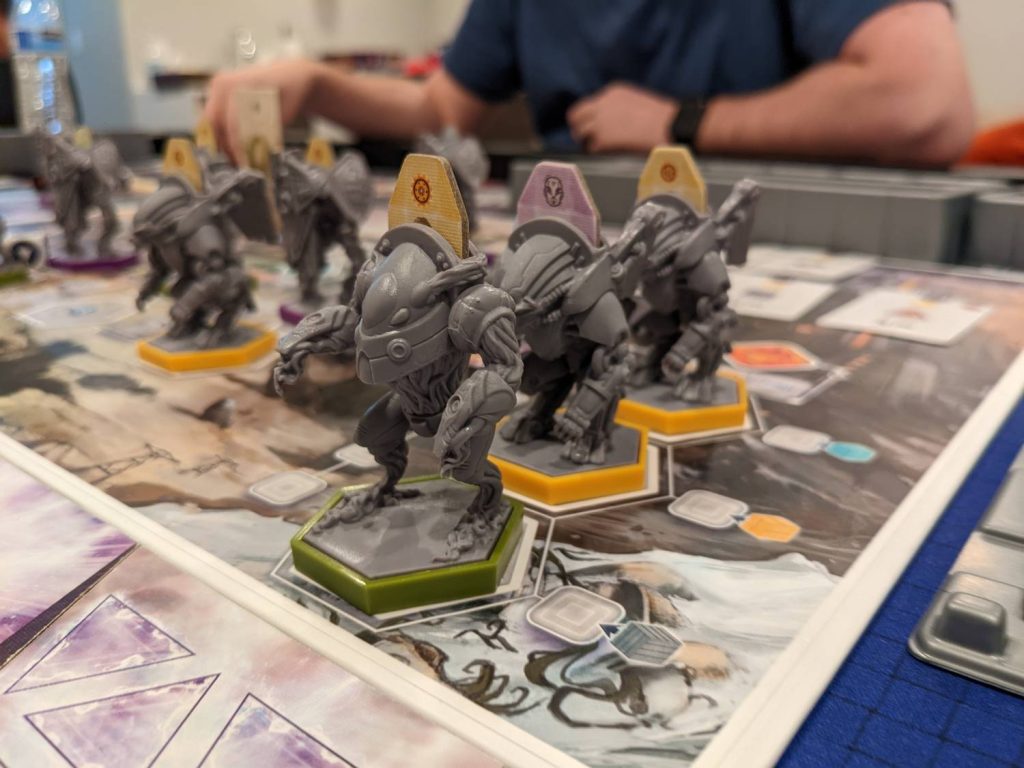
JB: So clearly, after the success of Trickerion, you had Anachrony. At that point, it must have felt like you could make games forever based on the success of Anachrony. What was the turning point around future business and the growth of Mindclash?
VP: When I started, building Mindclash into a great business came on the heels of the success of Trickerion. It didn’t look like we were set for life or anything, but we knew we needed to have a new title and we needed it pretty fast. People were asking, “What’s your plan for retail?” and I would always respond with “What’s ‘retail’?” [laughs] We started working with APE Games and they were incredibly helpful in helping us establish business in the retail space.
So, we had good capital, and we had a lot of people who really liked our theme-first vision. That’s when David [Turczi] came along with his idea for Anachrony. We knew David from back in 2013, someone who we already had on our radar. There was this regular, small board game design get-together in Hungary when everybody got to present their designs. David was the star guest, back then. He called in with his ideas from London, and it just kind of went from there. The game was called Paradox Factory back then, and it was about a factory that can use time travel to get stuff from the future. So, even then, Anachrony’s core idea was there.
Richard, David and I got together to build a world around the ideas of time travel and workers—the “two-tiered worker placement system”, as we like to call it. At this point, even David wasn’t as clear on what we wanted to do with the idea based on his initial design, but we built a story and a theme that made sense in every possible way. I’m not saying it’s ironclad or anything, but it is believable and it is interesting.
I still love that there’s a turning point in the game, when things change near the end.
JB: You must have inspiration as you try to develop a new game world. What sources do you try to pull in when you develop a new world? A lot of the games that I review have a short introduction, some nice artwork, and that’s the “theme.” It feels like in Mindclash games, I’m entering a world, a world already in motion.
VP: I get a lot of ideas from video games…in fact, I have a long list of ideas from video games that I haven’t seen implemented in board games; I’m dead set on implementing them at some point!!.
[An aside: Viktor shared some examples, but I’m not going to share those here because I really do get the sense that he is about to put some of these into games he is currently developing for Mindclash!]
Even if you take Anachrony, the core design had good ideas, then we worked on building up great mechanisms to make the game shine. Some of these ideas came from other mediums.
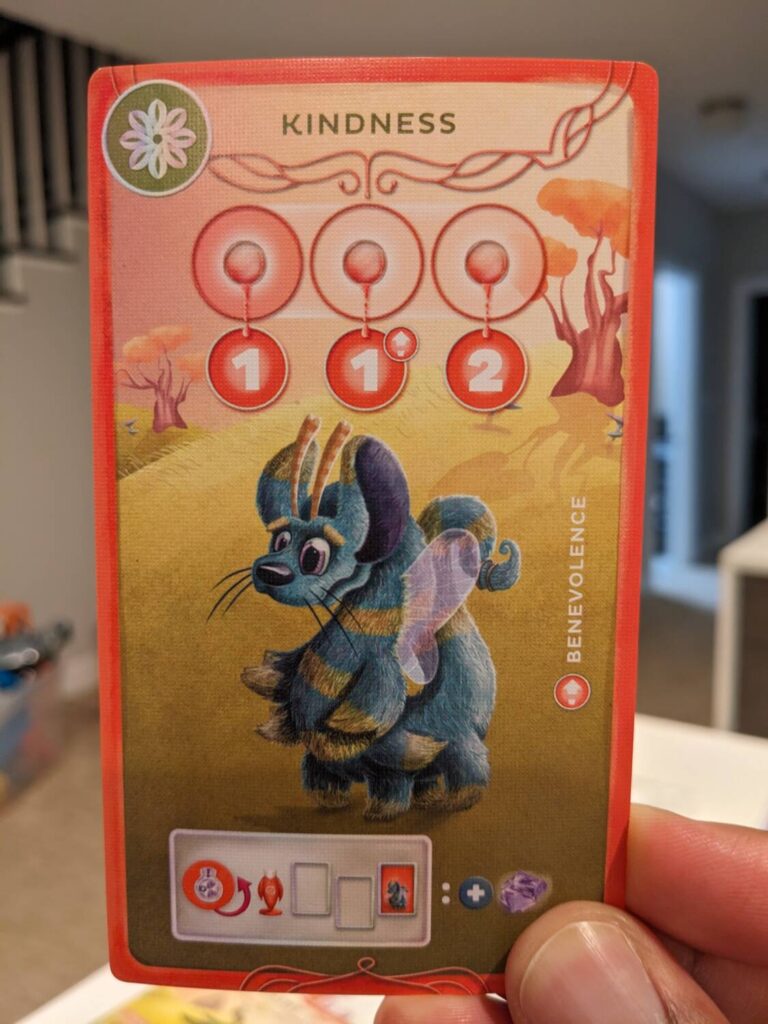
JB: Cerebria. The game was very interesting; I loved it. I love team games, and Cerebria is a four-player game with variants to scale it down for two or three player games. One of the guys in our group HATED it.
VP: There’s always that one guy!!
JB: Right! But the other Mindclash games I’ve played didn’t really have a polarizing feel to it. As you look back at Cerebria specifically, do you have a sense of why some people are so set against the type of play that Cerebria requires?
VP: It was a strange one, the development process then. Back then, we were always doing one project at a time. Nowadays, we are doing 3-4 projects at once. We got so deep in the design of Cerebria that we didn’t recognize how marketable it would be. It was, I mean, I wouldn’t change anything even now; it was our love child, in a sense. You could tell that we really put our heart and soul into that one. But at that point, we were an established business; from an established business perspective, is this game about what it says it will be? When someone looks at the cover, what are they really getting?
Cerebria requires you to learn a lot of things upfront—
JB: A LOT of other things up front! I’ve only needed the base game of Cerebria so far, and there’s a lot in there. It feels heavier than Anachrony, for sure!
VP: One thing that we learned from Cerebria—expanding the game to six players was not a good idea! It is playable, but I would not recommend it at that count.
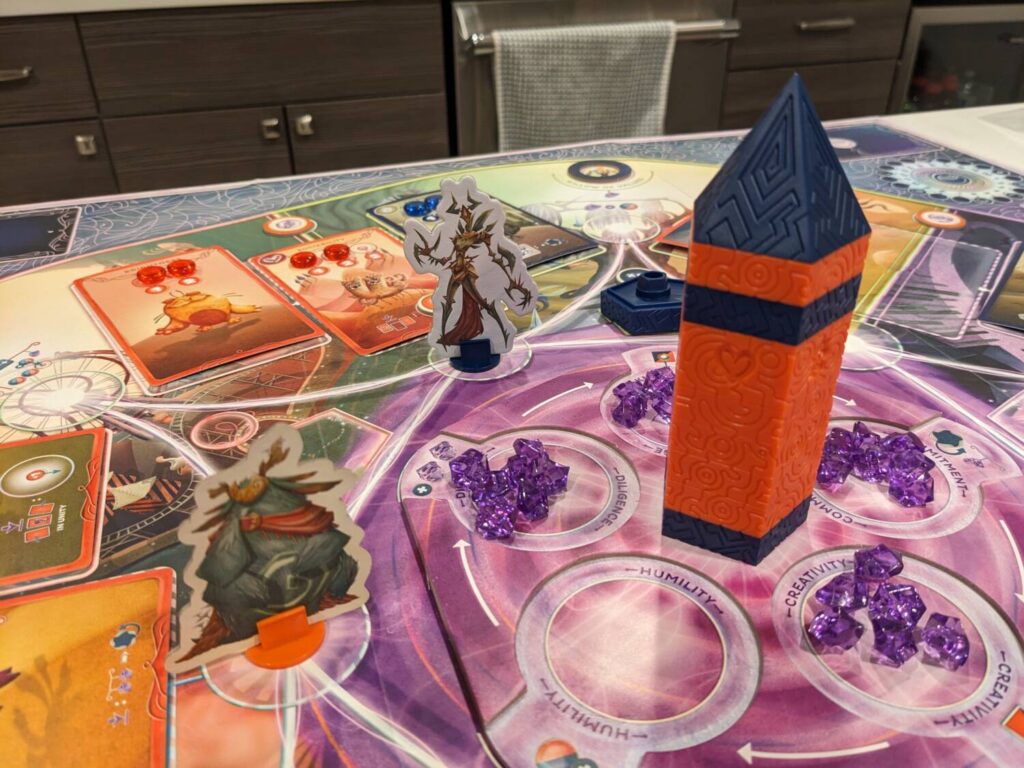
JB: Outside of your games, what was your favorite non-Mindclash game from 2022?
VP: Oh, that’s a tough one. I really liked Revive, actually. I had a similar theme in mind and I was a little upset that [designers Helge Meissner, Eilif Svensson, Anna Wermlund, and Kristian Amundsen Østby] executed it so well.
JB: A level of respect!
VP: I really like how multilayered the engine building is in that game. It’s so easy to get into; the UI and graphic design is masterful. It’s not a revolutionary game, but what it does, it does really, really well.
JB: How often do you get the chance to just break away and play games? How often do you have a game night with friends?
VP: Not too often, I’m sorry to say! We sometimes have these board game getaways, long weekends with friends, maybe 3-4 times a year. It’s not a lot; we also do some games in the office—non-Mindclash games—every 2-3 weeks.
JB: When do you find time to play everyone else’s games, then? You must have an awareness of what other publishers are releasing; do you have other employees who do that for you?
VP: Yeah, we have Robin (the designer of Septima) on our team who is our influence magnet; he collects inspiration from everywhere. Whenever he sees something else that would probably interest us, he just pitches it to me—”OK, I saw this thing, and it has THIS thing in it, and THIS thing”, etc. I try to make sure we have good awareness in that way to build that into our strategy, our designs. I really should try to spend more time seeing it first hand, but it’s hard because you get so absorbed by your own work. I try to keep a healthy amount of design in my weekly schedule, because that’s what inspires me, even though I have a company to run, but it’s hard to think outside of that.
JB: I spoke to David Chircop [president of Mighty Boards] last year about this; it’s hard to turn your “president of the company” brain off and turn your designer brain on, and go back and forth. How much time do you really bracket for design work each week?
VP: Thursday is my design day; I just keep it clean from other stuff regarding the business. For example, every Thursday right now, all we do is design work for Perseverance. On Tuesdays, we are also working on [an upcoming project, unnamed here], as well as testing pitches to see if any of these can turn into something new.
JB: Do you invite people to come to the Mindclash offices for pitch meetings? How do you take in new ideas?
VP: We don’t have a dedicated pitch meeting event, but we have a lot of meetings at events like Gen Con to hear new ideas. Robin, who I mentioned earlier, filters each pitch so that we are only looking at ideas that I think could work for Mindclash. There were quite a few pitches that made it; we might get hundreds of pitches each year, but we realistically consider about a dozen pitches a year seriously.
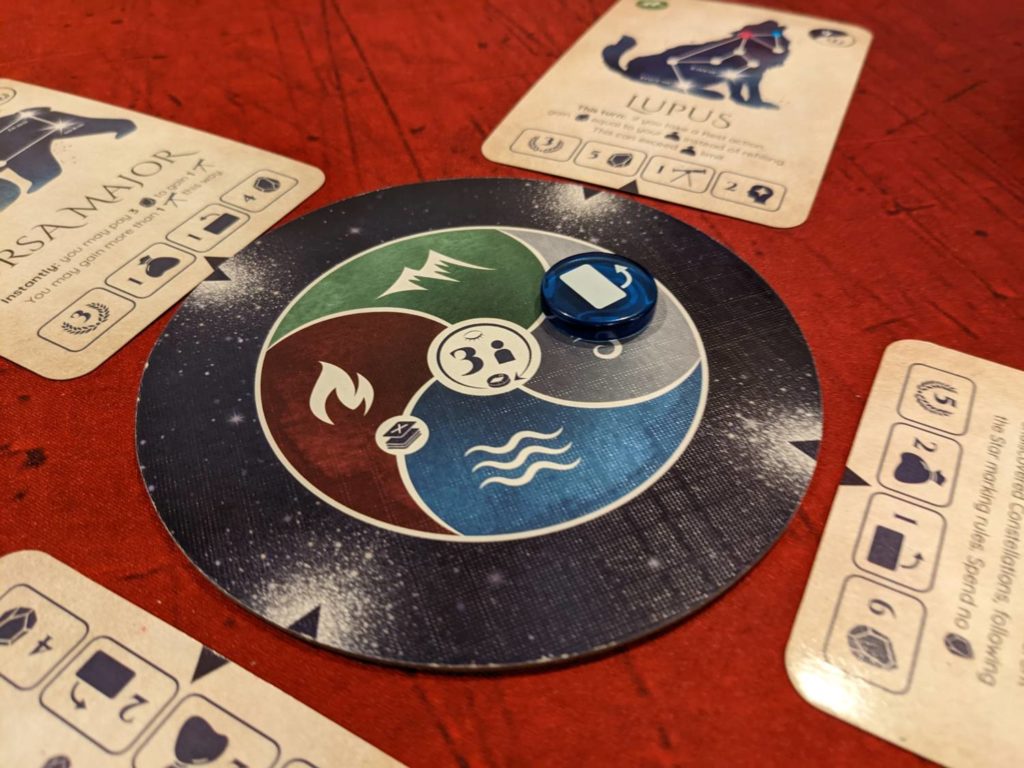
JB: Mindclash Play. Anachrony, Trickerion, [the upcoming release] Voidfall…all of them are SUPER heavy strategy games. Astra was much lighter than your other games. Tell me more about Play and where the line is going.
VP: All of our core games have been crowdfunded. Fancier games are harder to bring to retail. I just wanted to have something less expensive that would come to retail. It’s mostly Mindclash who are doing very thematic heavy Euros; certainly there are other heavy games out there but in terms of theme, there are only a few of us doing this right now.
This—making these heavier games as frequently as we do—is not easy to sustain, and our audience has very high standards. So we decided on a sub brand, a line that is intentionally built for a different audience. Still, the first few games will somewhat appeal to our core fans. Astra is definitely light, but someone from our core audience could sit down with their non-gamer friends and family and still have fun. It’s meant for a wider audience. Our next Play game [codenamed “Leaf”] will be revealed quite soon and it is coming to market in 2024.
JB: Is your hope that one Play game will come to retail every year?
VP: Yes. Straight to retail is a far more complex market, so we have to be a bit pickier with these titles than I initially hoped. The nice part is that the games are a bit easier to develop. If we want them to have an initial “big bang”, we have to be really, really careful to strike the right balance on the complexity. It’s difficult because sometimes, games hit the sweet spot—Earth is a recent example—and a game becomes the XYZ Killer of other games, like Earth is the Terraforming Mars or Wingspan killer. I don’t believe that a game has to “kill” previous great games, by the way!
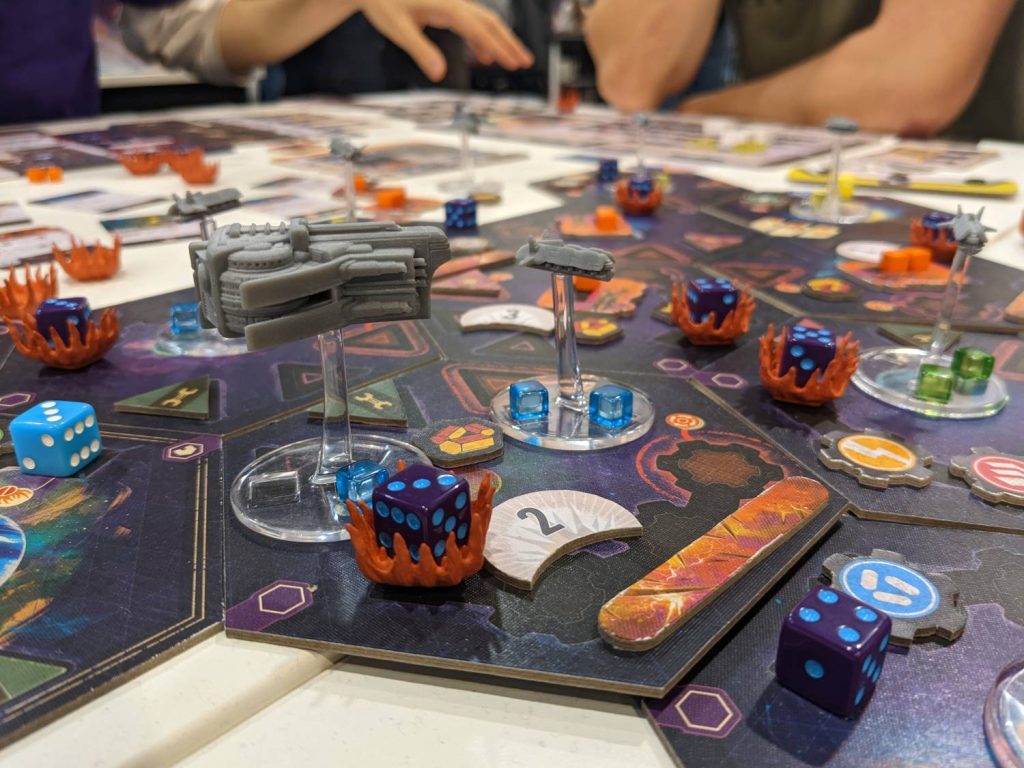
JB: Between Septima, Perseverance, “Leaf”, and Voidfall, it feels like the pipeline is really strong. What do you think?
VP: Voidfall is the game we have worked on longer than any other previous game, in terms of manpower and time. I hope it lives up to the expectations of the players.
JB: After I saw the deluxe version of Voidfall (at SPIEL ‘22), I wondered…is this the “deluxiest” of your deluxe games? Those ships, those player boards, the scenario booklet, the artwork…
VP: It’s hard to say. Ian [O’Toole] did a great job and he was a pleasure to work with. We will definitely work with Ian in the future. I don’t know who else could have pulled off all of the graphic design on this game. The way everything is depicted on the main board…man, it’s a work of art.
For me personally, the Collector’s Edition for Trickerion might be the best of the deluxe versions in my opinion. We promised we won’t reprint it, and we stand by that promise, but…MAN, I wish we could!
JB: For one of my review plays of Trickerion, a friend of mine broke out his deluxe version, and the friend also said that he hoped that you would never reprint it, because it gets to stay special.
VP: Things like that build a lot of trust with our fans.
JB: What do the next ten years look like for Mindclash?
VP: I would love to lean into more Play games coming out; we will work very hard for big retail releases over the next 2-3 years. We will also keep our core games coming; we like that they are heavy, but we will make them more accessible. Septima is a good example of the direction we would like to go; a little lighter than the core titles. I’m not saying we won’t do games like Perseverance and Voidfall any more; those are really us and we love those types of games. But the acceptance of Septima—and bringing in more people at conventions, new people—that tells me this is the right way forward and to do things that are enjoyable for more people.
JB: I haven’t played Perseverance and Septima yet. But the people in my group are really excited about Perseverance. Is the plan to go farther than episodes three and four?
VP: Well, right off the bat, we were planning for four episodes. With episode four, it ends…it ends with a bang! The fourth episode is the last of that series for sure. It’s a huge undertaking. [Viktor stared off for a moment, like he was reliving how “huge” the undertaking was.]
JB: I can tell when people say “it was a huge undertaking”, it sounds like it was a lot.
VP: The good thing is we learned a lot from the acceptance of episodes 1 and 2 that we could build into the development of 3 and 4. I think you will be surprised with how the complexity develops from game to game. Perseverance was meant to be our magnum opus. When we decided on the game’s structure, we didn’t really have retail as a plan; it was planned for this to be a true collector’s item, something that is really one of a kind. Since then, we realized that it has a lot of potential, even still, and we are designing episode 3 to be greatly compatible later, down the line. It’s still heavy, very meaty, just not as meaty as episode 2. Expect some twists on the mechanisms from the earlier chapters.
If you want to get to know the mechanisms, you should probably play the games in order. But the games are standalone games, so you don’t need prior knowledge of episode 1 or 2 to play episode 3.
JB: How big is the team at Mindclash? Is the plan to grow?
VP: 10 people. Right now, we can comfortably handle 3-4 projects at once. If we wanted to take on more, then yes, I could see the team growing a bit.
I’m really grateful for my team; it’s a really inspiring environment to be around.
A big thank you to Viktor for spending time with Meeple Mountain and sharing so much about the rich story of Mindclash! Stay on the lookout for more Mindclash content that we have planned for our audience over the next six months!


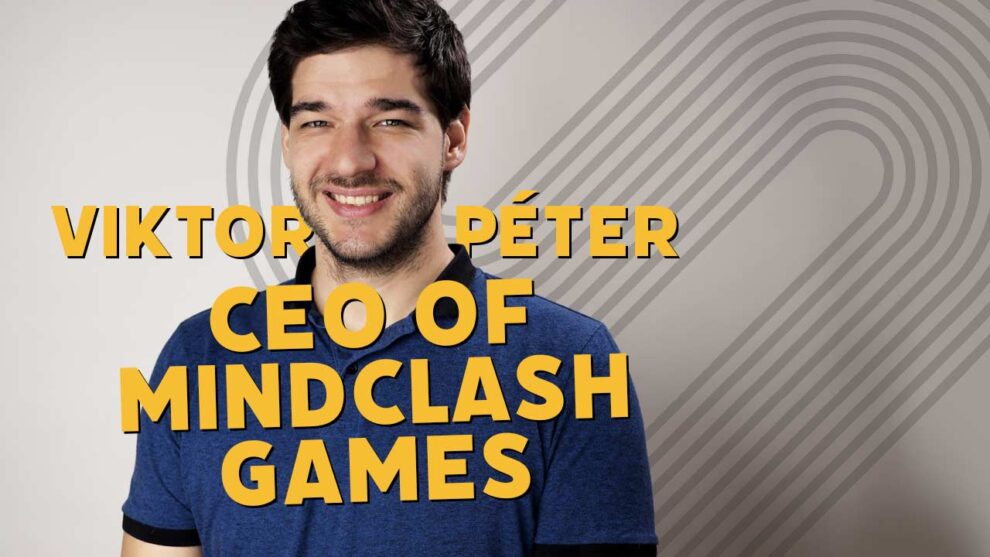
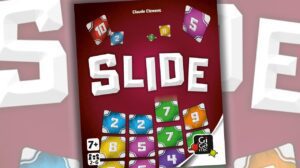
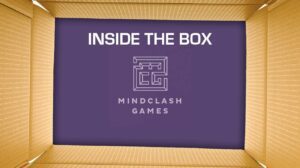
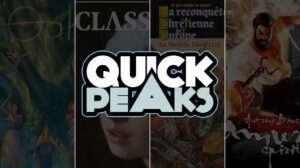
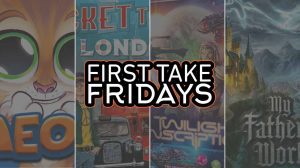




Thank you for posting this as a text transcript, very interesting read!